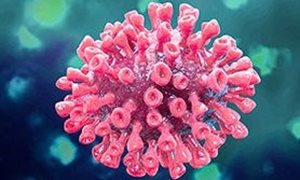28 May 2019
Alexander: “Rare disease are individually rare but collectively a common health problem. Unraveling the underlying disease causes can help individual patients and teach a lot about biology.”
More information on Alexander’s research group 'Immuno-Genomics' can be found here.
 Alexander Hoischen, affiliated with the department of Human Genetics and the department of Internal Medicine, has been appointed as associate professor ‘Genomic technologies & immuno-genomics’ on May 28.
Alexander Hoischen, affiliated with the department of Human Genetics and the department of Internal Medicine, has been appointed as associate professor ‘Genomic technologies & immuno-genomics’ on May 28.
Alexander: “Rare disease are individually rare but collectively a common health problem. Unraveling the underlying disease causes can help individual patients and teach a lot about biology.”
More information on Alexander’s research group 'Immuno-Genomics' can be found here.
-
Want to know more about these subjects? Click on the buttons below for more news.
Related news items

Epigenetics: Immunization is passed on to offspring Mice transmit adaptations to infections to next generations
19 October 2021 Does an infection affect the immunization of subsequent generations? It does, according to research now published in Nature Immunology. read more
Trained immunity: a tool for reducing susceptibility to and the severity of SARS-CoV-2 infection
17 February 2021 In a review in Cell Mihai Netea, Frank van de Veerdonk, Reinout van Crevel and Jorge Dominguez Andres propose that induction of trained immunity by whole-microorganism vaccines may represent an important tool for reducing susceptibility to and severity of SARS-CoV-2. read more
Invasive fungal infections in influenza and COVID-19
8 July 2020 The Aspergillus fungus is found in the lungs of many COVID patients. A parallel occurs with influenza patients, who often develop a serious fungal infection. Although such a serious fungal infection seems to occur less frequently in COVID-patients, alertness remains necessary, read more
Interleukin-37 plays a rol in the pathogenesis and treatment of gout
11 March 2020 RIMLS researchers Leo Joosten, Viola Klück and Rosanne van Deuren, in collaboration with the Dept. of Human Genetics, discovered that rare genetic variants in interleukin-37 link the anti-inflammatory cytokine to the pathogenesis and treatment of gout. read more
Exome sequencing in routine diagnostics: a generic test for 254 patients with primary immunodeficiencies
18 June 2019 Exome sequencing may provide a genetic diagnosis in a significant number of patients in a single genetic test. Alexander Hoischen and Mihai Netea, theme Infectious diseases and global health, and colleagues, published their results in Genome Medicine. read more
